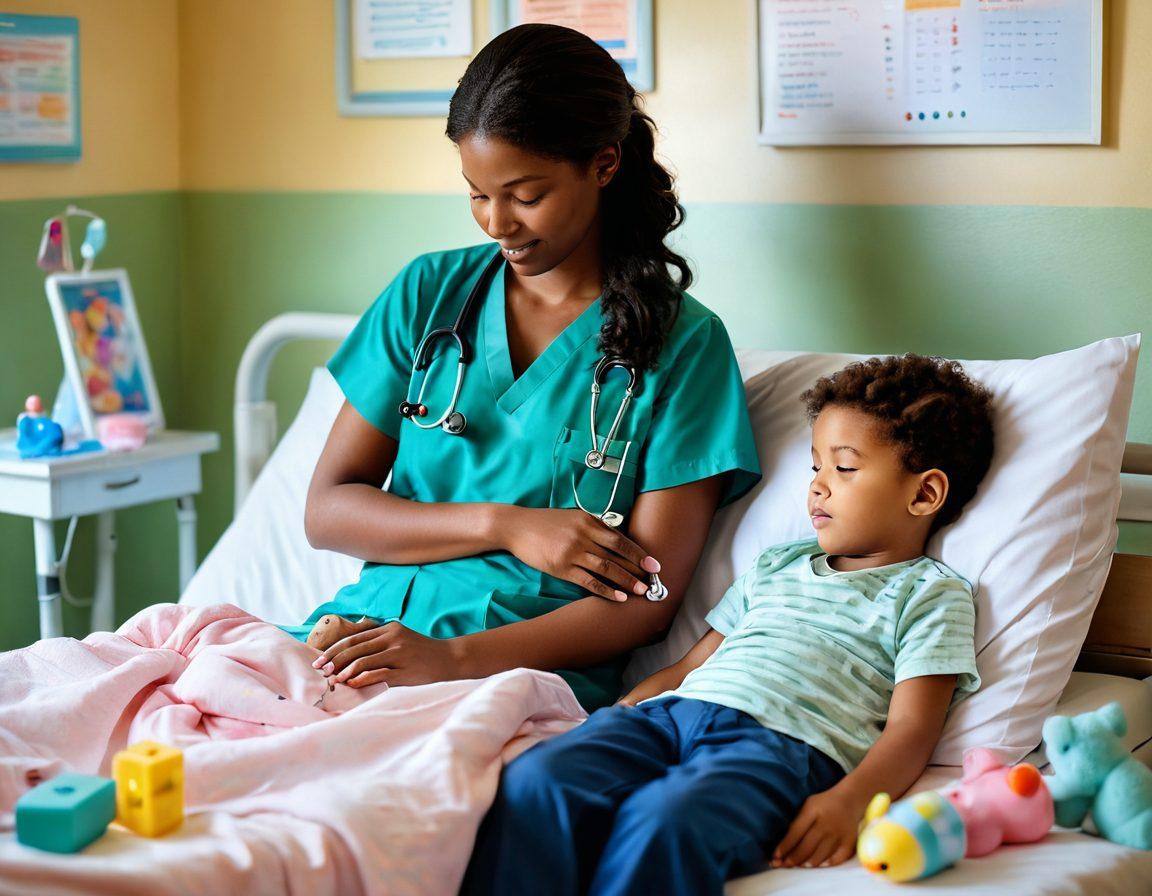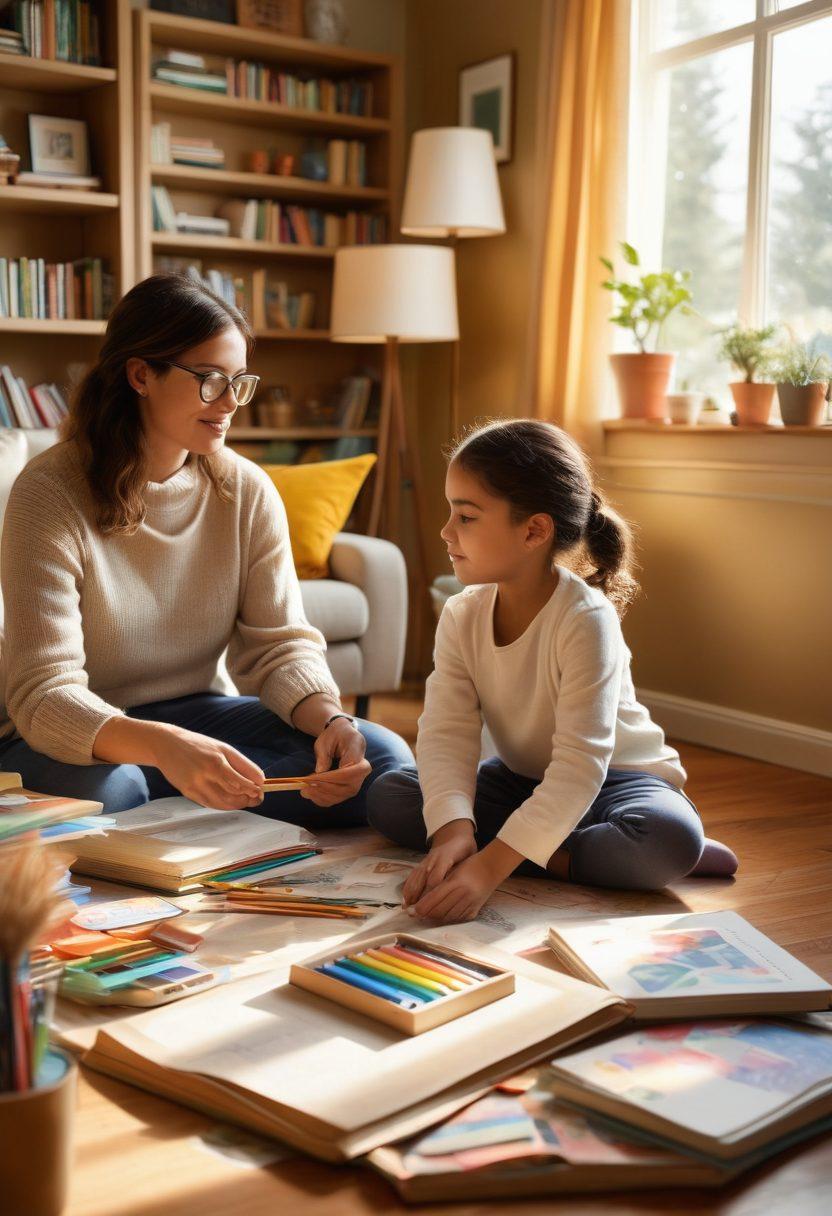Navigating Childhood Cancer: A Parent's Guide to Pediatric Oncology and Support
Every parent’s worst nightmare is hearing the words 'your child has cancer.' The world stops, and time stands still in that brief moment. For many, the journey begins with a bewildering diagnosis like 'malignant tumor' or 'neoplasm,' and the vast realm of oncology suddenly becomes more than just a medical term. How do you navigate this new reality? Armed with knowledge and valuable insights, you can transform this daunting journey into one of empowerment and resilience for both you and your child. After all, as the saying goes, 'knowledge is power.'
Pediatric oncology is a specialized field focused on diagnosing and treating childhood illnesses, particularly cancers. The good news is that children are incredibly resilient, and with the right 'pediatric care,' they can overcome these challenges. However, navigating the intricacies of their treatment plan can feel overwhelming. From understanding 'diagnosis and treatment' options to deciphering medical jargon, where do you even begin? Perhaps starting with supportive educational resources can ease your anxiety and establish a fundamental understanding of your child's condition. Consider reaching out to health blogs or community forums focused on children's health to gain firsthand insights from others who have walked this path.
Engaging your child during treatment can elevate their spirit and provide a sense of normalcy amidst chaos. Activities like 'sand play' or 'sandbox games' offer a wonderful way to encourage playfulness and creativity. Just imagine your little one, building castles and digging moats while laughing in the playground—these moments are vital for ‘child development.’ They serve as a reminder that even in the face of adversity, joy can still be part of the equation. Have you ever thought about how play could be incorporated into their recovery? Allowing children to express themselves through activities can promote emotional healing along with physical recovery.
Family support emerges as a lifeline throughout this journey. It’s not just about caring for the child but also ensuring that parents and siblings have the emotional tools needed to cope. Emotional intelligence in parenting during these tough times can keep the family unit strong. Don't hesitate to lean on your network or tap into local support groups. They provide a safe haven of shared experiences and can lead to lasting friendships. Community engagement helps break the isolating walls created by childhood illness, reminding you that you are not in this alone. Have you identified who your support network will be during this challenging time?
Lastly, the concept of survivorship in pediatric oncology deserves the spotlight. With advancements in medical research, many children live long, fulfilling lives after their diagnosis. As you walk alongside your child through diagnosis and treatment, remember to cultivate hope and foster health awareness. It’s crucial for parents to adopt 'health tips for kids' that foster not only recovery but long-term wellness. Regular check-ups, healthy eating, and physical activities should be woven into the fabric of daily life post-treatment. As another quote puts it, 'Life isn't about waiting for the storm to pass; it's about learning to dance in the rain.' How will you embrace life after cancer care?
Navigating the winding road of childhood cancer can feel like an uphill battle, but an informed and empowered parent can elevate the family’s spirit and health. Knowledge about pediatric oncology allows for better advocacy for your child's needs, while community support fortifies your family against the hiccups and hurdles along the way. By putting the emphasis back on playful experiences and family connections, we not only support our children in their fight but also foster resilience and adaptability within our families. In a world where uncertainty may linger, we have the power to create pockets of joy, awareness, and hope together.
Supporting Your Child's Wellness Journey: Resources for Families Navigating Tumors and Treatment
The journey through childhood cancer is one that no parent wants to navigate. Yet, for families faced with a diagnosis of a malignant tumor or neoplasm, the path can be fraught with fear, confusion, and a desperate longing for resources. Understanding that your child is not alone in this fight is the first step toward healing. In this blog, we will explore how to support your child's wellness journey while also arming you with essential educational resources and practical health tips for kids. After all, the more informed you are, the more empowered you will feel as you advocate for your child's pediatric oncology care.
Imagine a day in the life of a child navigating the complexities of cancer treatment. Picture a cheerful child playing in a sandbox with friends, the sun shining down, laughter echoing in the air. Yet behind that innocent smile could lie the weight of invisible battles fought every day. The truth is, engaging in child development activities like sandbox games can be a wonderful way for kids battling childhood illness to distract themselves from the realities of treatment. How can parents ensure their child remains connected to a life filled with play and laughter while dealing with a cancer diagnosis? For families, reinforcing the value of play is fundamental not only for emotional wellness but also for maintaining a semblance of normalcy in their lives.
When your child receives a diagnosis of cancer, the world as you know it shifts. You may feel overwhelmed with information about tumors, oncology appointments, and treatment protocols. Keeping clear lines of communication not only with your child but also within your community is critical. Family support becomes an anchor for emotional and mental health during this tumultuous time. Gather other parents who share similar experiences and consider engaging with local health blogs focused on children's health and cancer support. These forums can serve as solid foundations where ideas, fears, and triumphs can be shared, creating a supportive network that empowers parents and their kids alike.
As children undergo treatment, their needs may change as rapidly as their emotions. It’s essential to remain adaptable and resourceful. Parents should seek out organizations that specialize in pediatric care and survivorship. Whether it's finding therapeutic programs, social support groups, or even simple health awareness events, every touchpoint can enhance your child’s experience. What if every moment spent apart from treatment was a moment of curiosity, connection, and creativity? By incorporating youth wellness initiatives such as arts and crafts, educational resources, or community engagement activities into their patient's lives, we can help children embrace their identity, beyond their illness.
Finally, remember that the journey through a cancer diagnosis and treatment isn’t just about the child—it’s equally about the family. Prioritize your self-care, lean on your support systems, and never hesitate to ask for help. The emotional toll can be heavy, and maintaining your health is vital for the whole family's wellness. Whether it's through playgroups, community-driven events, or simply sharing a moment of connection over a shared laughter, support is everywhere. Your child's path to wellness can be a profound journey of resilience for the entire family, and the right resources can make all the difference in transforming despair into hope, one step at a time.
From Diagnosis to Survivorship: A Comprehensive Guide to Childhood Cancer and Community Support
When faced with the life-altering diagnosis of childhood cancer, a whirlwind of emotions envelops parents. The heartache is palpable, and the path ahead seems uncertain. However, the journey from diagnosis to survivorship can be navigated with the right knowledge and support. Understanding pediatric oncology and community resources can empower families to tackle the challenges of childhood illness with strength and resilience. And, as the saying goes, 'A smooth sea never made a skilled sailor.' Let's embark on this journey together, exploring not just the medical side, but the holistic approach to nurturing youth wellness during this turbulent time.
The moment you receive the diagnosis, whether it's a malignant tumor or a rare neoplasm, everything changes. It's like stepping onto a playground filled with obstacles, where every swing can bring joy, but every slide can lead to uncertainty. Pediatric care becomes not just about treating the illness, but also about maximizing your child's potential for growth and happiness. As parents, you find yourselves in a pivotal role, transforming the chaos of treatment into a space filled with love and resilience. Have you ever thought about how your reactions shape your child's journey?
Navigating the intricacies of diagnosis and treatment can feel overwhelming, but knowing what to expect makes a world of difference. Pediatric oncology is an evolving field; breakthroughs and knowledge increase daily, providing newer treatment options designed specifically for children’s health. It's essential that parents have access to educational resources, becoming partners with their child's health care team. Create a dialogue and ask questions that clarify uncertainties. Remember, the more informed you are, the more empowered you become, enabling each family member to actively participate in this healing journey.
Support doesn’t stop at medical facilities; community engagement is key to fostering a nurturing environment that promotes child development. Local awareness initiatives often provide avenues for engagement, from sandbox games to health tips for kids that emphasize nutrition and wellness. Families can participate in support groups that introduce play and laughter, reminding parents that their child's joy is paramount. How do you make time for play during this hectic phase? Embrace the importance of sand play and other activities that allow your children to express themselves beyond the scope of their illness. Every moment spent laughing is a moment where health awareness shines brighter than the shadow of cancer.
As your child progresses towards survivorship, take the time to reflect on this journey. Each milestone achieved is a testament to resilience, both for your child and your family. Remember that cancer support doesn’t just revolve around the illness but extends into creating a community that understands and uplifts one another. Utilize available resources and connect with others who have walked a similar path. With a blend of parenting, support, and a focus on youth wellness, your family not only survives but thrives. What stories will you share from this chapter of your life? Your experiences could inspire others, paving the way for hope in the face of adversity.


